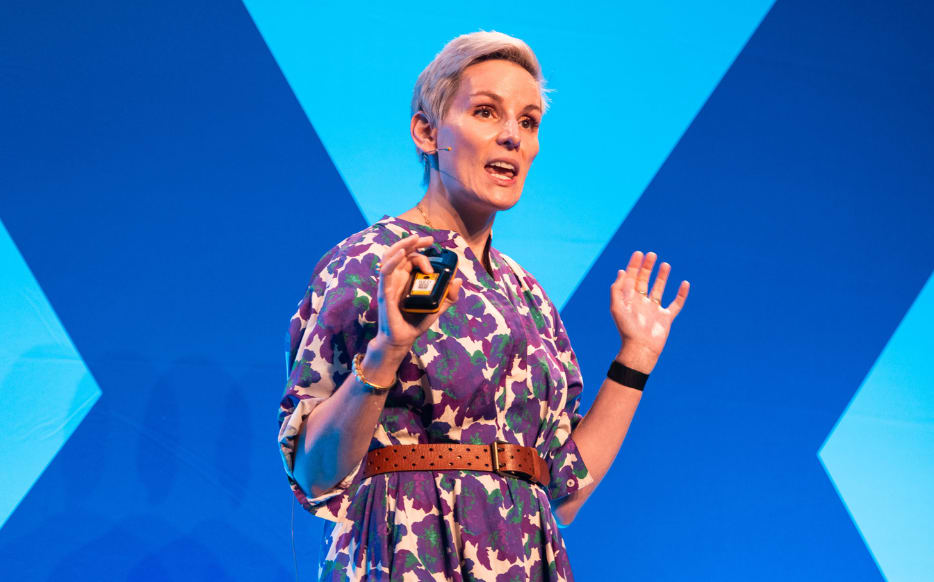You have 1 article left to read this month before you need to register a free LeadDev.com account.
If you can’t hire them, buy them. That’s the new mantra for Microsoft, Meta, Google and others as they hoover up in-demand AI talent.
Over the past 18 months there have been a number of big money deals for AI companies with the clear intention of acquiring the talent involved, as much as other assets. In the age of generative AI, acqui-hiring has never been more popular.
Microsoft spent $650 million to license Inflection AI’s technology and hire its key staff. Amazon struck a similar deal for $330 million with Adept AI. Google and Cognition essentially divvied up Windsurf’s staff between them, and Meta invested almost $15 billion in Scale AI for a 49% nonvoting stake and the CEO jumping ship.
These are just the bigger deals; there have also been dozens of deals with undisclosed terms or much lower sums of money on the table.
Your inbox, upgraded.
Receive weekly engineering insights to level up your leadership approach.
Good AI talent is hard to find
A massive shortage of AI talent is the biggest driver of acqui-hires. Technologies like large language models (LLMs) are developing so quickly that the number of people with the level of expertise and experience necessary to build them into viable products at major tech companies is far smaller than the market wants.
Bill Peppler, the Orlando, Florida-based COO for the professional-staffing agency Kavaliro explained that in some cases, “job descriptions have evolved faster than the skills of the available workforce. Someone who worked on Natural Language Processing models two years ago might not have hands-on experience with LLMs, Reinforcement Learning from Human Feedback, or prompt chaining.”
While this is a problem for companies hiring entry and mid-level engineers, the situation is even more stark for companies looking for proven AI researchers and engineers. This kind of top tier talent isn’t available through normal hiring pathways and tends to be locked into contracts with restrictive non-compete clauses.
More like this
Top tier talent comes with legal issues
The tech press is littered with stories of situations where a company has hired a high profile engineer away from another company only to be hit with a lawsuit alleging some kind of IP or trade secret theft. The situation is particularly stark when AI is involved, as the nuances of the technology are so integral to any financial valuation.
“It’s really hard to separate a founder from a company that they started,” says Joseph Morrison, a partner at law firm Barnes and Thornburg. “Or a lead developer or a CTO or any of these really talented AI engineering folks.”
The problem is that much of their industry knowledge and any ideas they developed while working for their previous employer could be considered intellectual property that the employer may still have residual claims to. And that’s before you look at non-compete clauses or any of the more overt methods that companies use to block their employees from being poached.
For AI companies, an acqui-hire (whether you fully acquire the company or just license its technology) buys out this risk. “IP litigation is incredibly expensive,” says Morrison “So an acqui-hire, in many cases, is just the cost to really cleanly break talented engineers from onerous restrictions.”
Acqui-hires are an acceptable off ramp
Tech companies and talent aren’t the only interested parties in any acqui-hire deal. There are also venture capitalists and other investors. According to Morrison, an acqui-hire can be an acceptable exit in many situations.
As Morrison explains it, there are a lot of startups launched in the last few years that have raised more money than they are currently valued at. If they were sold today with typical deal terms, liquidation preference would see the investors get some of their capital back, while the founders would be left with nothing. This creates a situation where it’s not in the founders’ interest to sell, so the value of the company keeps declining until it folds.
With an acqui-hire, however, the calculus can change. “Some amount of money usually goes out to satisfy the liquidation preference of the investors,” says Morrison. “It’s usually only partial satisfaction so if investors put in $10 million and the company’s only worth $2 million, then they’ll get $2 million.” The sweetener for the founders is a substantial signing bonus, or multi-year employment agreement.
Long term consequences
Acqui-hires are a solution to a particular problem that’s facing tech companies right now: Finding and locking in AI talent. But like with all immediate fixes, there can be longer term unintended consequences.
While acqui-hires avoid some of the regulatory scrutiny of mergers, the EU has indicated that these deals are likely to face more scrutiny going forward. It’s undeniable that they can still be anti-competitive, even if the company that’s acquired doesn’t immediately shut up shop.
Another issue is that the acqui-hired staff don’t always fit neatly into a major tech company. One of the key staff members that Meta hired from Scale AI earlier this year has already left and given the sums of money involved in these deals, retaining staff after their initial contract is up could create additional challenges.
While the current spate of AI acqui-hires are noteworthy, Morrison points out that they aren’t a new concept. “The numbers in AI are so huge that it makes it feel like it’s something different,” he says. “But the numbers alone don’t make it a different phenomenon.”
He feels that CEOs, hedge-fund managers, and even sports stars have always had multi-million dollar pay packets because of the perceived economic value that they create. Given the level of hype around AI, it’s only natural that engineers and researchers would see the same kind of deals.

London • June 2 & 3, 2026
LDX3 London agenda is live! 🎉





